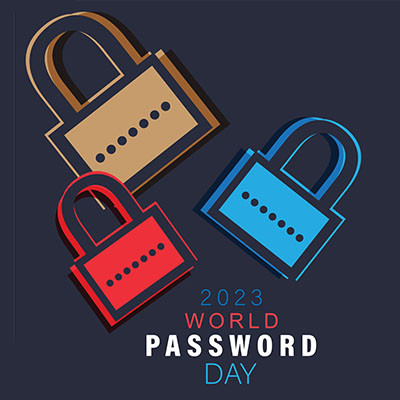Did you know that tomorrow is World Password Day, 2023? As the result of a campaign to spread awareness of the importance of sufficiently secure passwords, it has become an annual reminder of how critical sufficient passwords are to proper cybersecurity…despite passwords not being sufficient protection on their own. In light of tomorrow’s observance, let’s take some time to review why passwords are important to get right, and what else you need to have in place.
World Password Day Remains Critical to Your Security…
Back in 2005, a security researcher by the name of Mark Burnett wrote a book—”Perfect Passwords”—that included his advice that everyone establish their own personal “password days,” where they take the time to go through all their passwords. Intel took his advice and turned it into a global observance, selecting the first Thursday in May as the established World Password Day. Since that day in 2013, this day has been designated as the day to update and refresh the many, many passwords we rely on each and every day in both personal and professional life.
Remember, as you do so, to keep a few key best practices in mind:
- Your passwords should all be unique, without any being repeated across accounts.
- Alphanumeric characters and symbols should be used wherever possible.
- Likewise, each password should be sufficiently complex and difficult for anyone to guess. A passphrase, made up of unrelated words, is another option.
- Passwords should never be stored or saved someplace insecure, like a scrap sheet of paper or a notepad doc. The only acceptable place to save them is in a standalone password manager that has been approved by IT.
…But You Can’t Stop at Passwords Alone
It is also important to acknowledge that passwords aren’t really as secure as we all would hope. There’s a reason that we—and many, many applications—so often push for multi-factor authentication. Requiring a second identification, usually in the form of a generated code or biometric proof, makes it far more difficult for a cybercriminal to access an account they aren’t supposed to access. Honestly, it’s becoming less and less of a recommendation, and more of a mandate for many.
So, While You Should Consider Your Passwords’ Strength Tomorrow, You Should Also Augment Your Security with MFA
We can help! Reach out to us at (604) 513-9428 for assistance with your account security, as well as that of your business as a whole.




